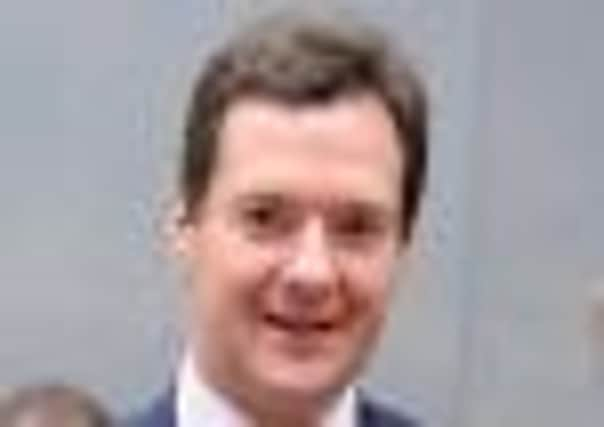UK committed to cuts despite IMF’s grim growth forecast


The grim warning prompted renewed calls for a change of direction over the coalition government’s spending cuts, but ministers last night insisted that they “remain committed” to their hardline approach to tackle borrowing.
European debt worries also rose yesterday when Italy had its credit rating downgraded by the Standard and Poor’s agency amid concern over its ability to pay off its massive borrowings.
Advertisement
Hide AdAdvertisement
Hide AdThe UK will see gross domestic product (GDP) grow 1.1 per cent in 2011, according to the IMF’s latest World Economic Outlook, compared with 1.7 per cent in April. It is now also predicted to grow by 1.6 per cent in 2012, compared with 2.3 per cent in previous forecasts.
The forecasts for the UK in 2011 fall behind projections for Germany, France, the eurozone, the US and Canada.
“The global economy is in a dangerous new phase. Global activity has weakened and become more uneven, confidence has fallen sharply recently and downside risks are growing,” the IMF said.
It said the US economy could be weak for years to come and warned that policymakers in the country must balance support for the economy with fiscal tightening.
IMF chief economist Olivier Blanchard said: “Strong policies are urgently needed to improve the outlook and to reduce the risks. Only if governments move decisively on fiscal policy, financial repairs and external rebalancing, can we hope for stronger and more robust recovery.”
The organisation, now led by former French finance minister Christine Lagarde, said the forecasts were dependent on the eurozone debt crisis being contained. The IMF said the outlook for advanced economies, including the UK, was for a “weak and bumpy” expansion.
Germany is forecast to grow 2.7 per cent in 2011, while France is expected to show 1.7 per cent growth. The US should advance 1.5 per cent and Canada 2.1 per cent. However, by 2012, UK growth should surpass both Germany and France, according to predictions.
The organisation said policy- makers should pay particular attention to the eurozone crisis and weak activity in the US, which both threaten global growth.
Advertisement
Hide AdAdvertisement
Hide AdThe downgrade is the latest blow to the UK’s recovery prospects after the influential think-tank OECD cut its estimate for growth amid disappointing economic data.
The gloomy outlook is unlikely to deter Chancellor George Osborne from his deficit-busting fiscal measures. Earlier this month, Ms Lagarde gave her backing to his austerity measures, although she added that “the heightened risk” meant a need for a “heightened readiness to respond”.
A spokesman for the Treasury said the government remained committed to its deficit-busting plan.
He said: “It is welcome that the IMF has forecast that the UK will grow more strongly than Germany, France and the eurozone next year, but it is clear that the UK is not immune to what is going on in our biggest export markets, with every major economy seeing lower forecasts for growth this year and next.
“The government remains committed to implementing the deficit-reduction plan which has delivered stability, a policy stance that Ms Lagarde described as ‘appropriate’ earlier this month”.
The Chancellor’s fiscal tightening has been challenged by business leaders, economists and opposition politicians in recent months as the economic outlook for the UK deteriorates.
But Mr Osborne is determined to continue with the austerity measures laid out last October in his Comprehensive Spending Review, which he has labelled “the rock of stability” on which the economy is built.
Business Secretary Vince Cable said the warning from the IMF was “plausible”, but insisted there could be no retreat from the coalition’s efforts to tackle the deficit.
Advertisement
Hide AdAdvertisement
Hide AdTUC general secretary Brendan Barber said the growth downgrade was “a further blow to the government’s economic credibility”.
He said: “Calls for a Plan B are growing. The Chancellor must change course before he causes even more damage to the economy.”
Shadow chancellor Ed Balls said Mr Osborne and political leaders in Europe needed to wake up to the scale of the economic problems they were facing.
He said the Chancellor’s austerity measures had “crushed confidence and pushed up unemployment”.